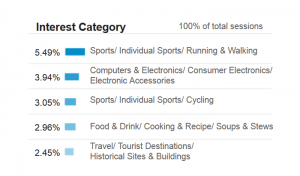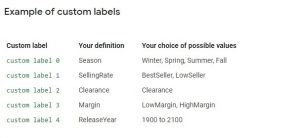— January 16, 2018
As experienced marketing headhunters, we see many candidates going in for interviews encounter behavioral interviews. Whether these candidates come from digital, e-commerce, brand or any other backgrounds, we find that our clients frequently conduct behavioral interviews. This is one of the most common job interview methodologies employers use to evaluate talent.
While behavioral interviews have been around for a long time, our marketing recruiters see a notable rise in the popularity of this approach.
Marketing Headhunters Explain How to Master Behavioral Interviews
Simply put, behavioral interview questions ask candidates to describe a scenario they’ve encountered in the past and how they managed the situation.
A behavioral interview essentially demonstrates that the organization understands what success looks like for their specific role and the types of behaviors that relate to success. The questions that you are asked are used to assess how you’ve approached challenges in the past, so the marketing recruiter can get an idea of how you perform when faced with similar challenges.
What to Expect
There are two clear giveaways that indicate you’re in a behavioral interview – if the interviewer asks to tell “about a time when” or asks for a specific example of a certain situation. For instance, a marketing recruiter or a potential employer may ask you to give an example of a time where you had to manage multiple conflicting priorities. These types of questions are used to gauge you on your motivation, leadership, and cross-functional communication.
More importantly, you’re going to encounter questions that are specific to the type of role you are going in for. If it’s a brand management role, you may get questions that ask you to give an example of a time when you took over a brand that wasn’t doing well and how you turned it around. If it’s a digital marketing role, marketing recruiters may ask you to describe a time when you went into an organization where digital was fundamentally broken, and how you fixed it.
The Details Matter

If you’re answering a behavioral-based question, it’s critical to ensure that the interviewer completely understands the situation you are presenting.
This entails answering the question comprehensively and sharing specific details, so make sure to give an overview of the situation and the challenge you faced at the time. You then want to share how you broke down the problem, the things you did to solve the problem, what your strategy was for approaching it this way, and what you did tactically to execute against the solution. But most importantly, ensure to explain the results you drove for the organization and how that organization is better off because you implemented the solution.
Another critical element about answering behavioral-based questions is that you give a clear and complete answer. However, don’t spend the entire interview answering just one question – make sure your answer is detailed enough but concise so the interviewer has the opportunity to ask more questions.
Prepare Like a Pro

It’s critical to properly prepare for an interview so that you’re able to go through your background and pull out key wins and successes that showcase you’re the top candidate for this specific position.
Once you’ve prepared yourself adequately, conduct research on the organization and the position. Then, come up with some sample behavioral questions you think they might ask, with answers that are based on your background, experience, and your key accomplishments so you get comfortable answering this kind of questions.
One of the major things to make sure of is that you don’t answer a behavioral-based question without providing a solid example to support your solution. Make sure that every question you answer comes with a real world example of your success and accomplishments.
When You Get Asked about a Failure
In a behavioral interview, employers also want to understand how you deal with failure and how you’ve overcome situations where you haven’t been successful in the past. You might be asked to give an example of a time where you failed, when you weren’t successful, or a time when you faced constraints that kept you from moving forward.
In each of those questions, the right answer isn’t to say you’ve never failed. You want to demonstrate you’ve learned from the times you weren’t successful, and that you won’t repeat similar mistakes again.
Get the Details
Marketing headhunters recognize how common behavioral interviews are in today’s recruitment space. Thus, it’s important for marketing executives and all marketers to properly prepare. Any interview you walk into now, whether for a senior role or a junior to mid level position, could be a behavioral one. To get detailed information on succeeding in behavioral interviews, watch this video:
Bonus: Frequently Asked Behavioral Interview Questions
- Marketing is changing faster than ever – what have you done to make sure you haven’t fallen behind?
- Marketers have a lot of responsibilities and expectations put on them – how do you prioritize multiple tasks on your plate?
- How about a time when you fell short of a goal – what happened, and how did you cope with a failure?
- Tell me about a situation when you worked as part of a team to execute a mission-critical marketing project and the role you played.
- How did you handle negative feedback on your work from a peer, client or supervisor in the past?
Business & Finance Articles on Business 2 Community
(99)
Report Post






